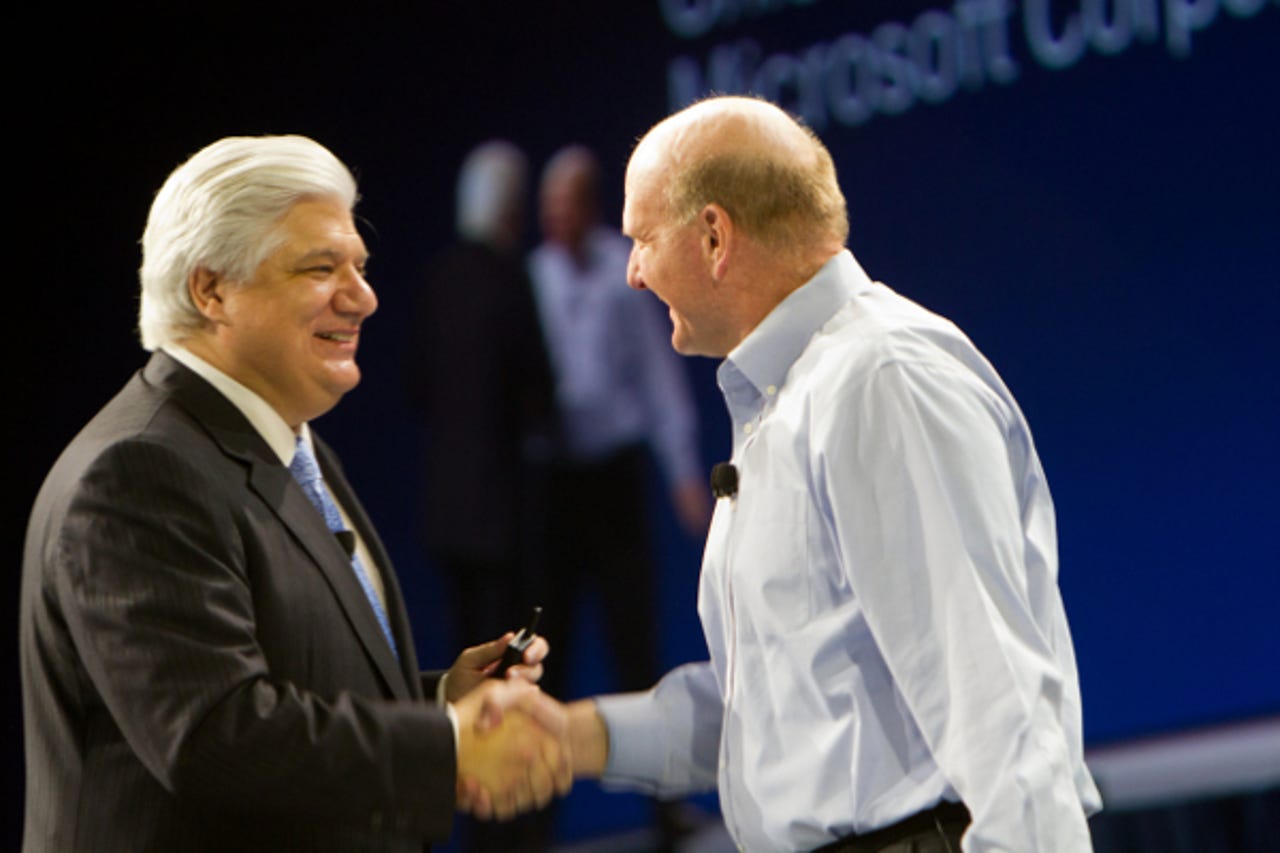Ballmer Bings RIM: Microsoft search to be BlackBerry default

RIM's BlackBerry PlayBook and all new smartphones to push Microsoft search first...

Bing on BlackBerry: RIM's Mike Lazaridis and Microsoft's Steve Ballmer shake on itPhoto: RIM
The ink may be barely dry on the Microsoft-Nokia Windows Phone 7 (WP7) pact but Microsoft's CEO Steve Ballmer has already been out wooing fresh mobile partners. On Tuesday, Ballmer took to the stage at RIM's BlackBerry World user conference to announce a partnership with the BlackBerry maker over Microsoft's Bing search engine and maps.
The Bing search engine will be the default search provider in the browser for all new BlackBerry smartphones, a RIM spokeswoman confirmed. Bing search will also be the default on the company's BlackBerry Playbook tablet and Bing maps will power the tablet's native map app. RIM has not yet made clear whether it will receive payment from Microsoft for pushing Bing to BlackBerry users.
The PlayBook launched last month in the US but has not yet made it into shops on this side of the Atlantic.
Both companies have blogged about the partnership, with Microsoft's Matt Dahlin, director of Bing, describing the love-in as an "alliance", while a post on the official BlackBerry Blog said the partnership will see Bing "deeply integrated into the BlackBerry experience".
The pair added that Bing will also get "regular, featured placement and promotion" in the BlackBerry App World carousel.
Dahlin's post flagged up the importance to Microsoft of integrating its search software "on mobile devices of all sorts" - not just phones running its own WP7 OS.
"This goes way beyond a search box and links that rank URLs representing a set of web documents," he noted in the blog post. "Devices are becoming sensors that can provide real-time access to information to help people quickly complete tasks on the go. We're going to see a convergence of search, commerce, social and location-centric services."
Tweeting about the agreement, Forrester analyst Ian Fogg said the Microsoft-RIM tie-up on BlackBerry search suggests Nokia CEO Stephen Elop "may have been completely right with his three ecosystems outlook".
In February, Elop described the mobile landscape as "now a three-horse race" after Nokia announced its own tie-in with Microsoft. The other two horses in Elop's metaphor are Apple's iOS and Google's Android platform.
Gartner analyst Carolina Milanesi told silicon.com that the agreement with RIM is about Microsoft capitalising on every opportunity at its disposal. "This is not about their mobile strategy. This is about Microsoft's search business," Milanesi said.
She said the deal should not be seen as negative for the WP7-Nokia partnership. "If anything, this is good for Nokia as it means that BlackBerry devices will use Bing, which uses Microsoft's maps so potentially driving more revenue for them," she added.
Bing was the fastest growing search engine in the UK in March, according to data released last month by market research company Experian Hitwise. While Google remained the dominant search player, accounting for more than 90 per cent of the UK market, between February and March 2011 Google search sites lost 0.66 per cent market share of searches, while Microsoft sites increased their market share by 0.28 per cent.
Releasing its worldwide smartphone market share data for the second quarter of this year, analyst house Canalys said Android led the market for the second quarter running, shipping 35.7 million units and increasing its share to 35 per cent.